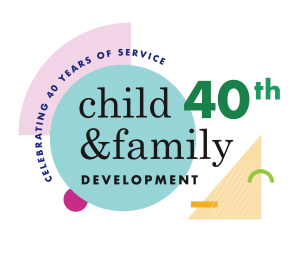Written by: Lindsey Anuzis, MA, LCMHCA, NCC, RBT ~ Child and Family Development
I want you to do me a favor, I want you to pause. Pause, and think about how you are feeling right in this moment. For the record, fine is not a feeling…But you may be realizing that coming up with feeling words can be quite challenging, and you are not alone! Think of how many times per day you engage in the auto pilot exchange of “how are you- I’m good, thanks. How are you? – Fine, thanks!.. And you’re both on your way…” Maybe we do this because we can’t think of a feeling word, or maybe we do this because it is easier than actually telling people what we are feeling… maybe it’s a bit of both?!
Which brings me into the topic of feelings, and emotional intelligence. So what is emotional intelligence, anyway? Emotional intelligence is something you can learn, practice, and improve upon. It is our ability to identify, understand, and manage emotions within ourselves and others. When connection with others is one of our basic biological needs; knowing how to identify and understand emotions seems pretty important!
I recently learned about the incredible work of Dr. Marc Brackett through Brene Brown’s podcast, “Unlocking Us” (which is great if you like podcasts!). Dr. Bracket is a psychologist and the founding director of the Yale Center for Emotional Intelligence. His center is devoted to understanding, teaching, and improving the emotional intelligence of all. With kids in particular, he developed the RULER method, which is a program focused on incorporating emotional intelligence into preschools and other educational institutions. I believe Dr. Brackett’s work on Emotional Intelligence is a fundamental and pertinent concept that can and should be implemented into all facets of child development and life!
I learned more about this program, and emotional intelligence as a whole through Dr. Marc Brackett’s book, Permission to Feel – which I HIGHLY recommend for anyone and everyone, whether you have kids or not! His message, and the purpose of the book is that if we can learn to identify, express, and harness our feelings (even the most challenging ones), we can use those emotions to help us create positive and satisfying lives. It all starts with awareness of our emotions.
Here comes the challenge – human beings have a natural instinct to avoid feeling and being vulnerable, and because of that, even though our lives are saturated with emotions, those feelings can feel inconvenient amidst our busy lives- so, we ignore them. We are taught to ignore our feelings, especially the unpleasant ones, from a very young age because they are uncomfortable. You’ve likely heard statements along the lines of “you’re okay”, “don’t cry”, “stop dwelling”, “it’s time to move on to bigger and better things”, etc. Except, when we ignore or suppress our emotions, they get even bigger, and louder, and more disruptive within our minds and bodies…and we become dysregulated. Our feelings influence all aspects of our lives, including our thoughts and behaviors.
We as a society also tend to categorize emotions as “good” and “bad”, or “positive” and “negative”; rather, emotions would be better served if we viewed them just as they are – bits of information. Our emotions are informational responses to the various internal and external events we experience. By bringing awareness to emotions just as they are, we are better suited to understand our environments, ourselves, and those around us.
So how does this relate to your kids? Well, bringing awareness to emotions, and teaching kids how to identify them from an early age, can be incredibly impactful in their overall development. Emotional intelligence can also help children with the identification and exploration of values! Research has found that children with higher emotional intelligence are better able to pay attention, are more engaged in school, have more positive relationships, and are more empathetic. I’m sure those are all traits most parents would like their kids to have… but in order to help our children, we as adults must work on ourselves first.
Learning the skills and improving the way we as adults and parents respond to our own feelings doesn’t mean we will be happy all the time, that’s not realistic, or the goal. The goal is to be able to effectively regulate all our emotions in order to achieve greater well-being, maintain better relationships and reach our potential. That is when we are able to teach the kids.
In my work as a licensed mental health counselor, emotions and feelings are common topics discussed in sessions. I work mostly with children, teens, and parents, and have realized how difficult it can be for a client to reflect upon their feelings, when they aren’t even sure how to put their feelings into words. I often utilize a wheel of emotions in session (I have included one for children from the website Defend Innocence, and one for adults) which gives my clients the permission to feel and explore.
Now that we have discussed the importance of emotional intelligence, I want you to think about all the opportunities you have throughout your day to continue practicing emotional intelligence- with yourself, and your kids! I want you to notice the opportunities, and then I want you to take advantage of them! Feel free to practice identifying emotions with the wheels I provided!
Start within your family, next time you are asked “how are you” I want you to actually respond with an actual emotion that you are experiencing. This may take some practice, and while it may not feel comfortable, it will make those around you stop and think about how you are feeling, and in turn, they may switch their focus introspectively and they may then reflect on their own actual emotions and feelings. It will create a ripple effect of emotional awareness and improved emotional intelligence. As always, if your emotions, or your child’s are ever too much to handle on your own, reach out! There is always a licensed mental health professional ready and willing to help!
Child Wheel of Emotions:
Start with the inside wheel for younger kids, then move to the outer wheel as they get older to help them understand their emotions better.
Lindsey Anuzis, MA, LCMHCA, NCC, RBT is a Licensed Clinical Mental Health Counselor Associate as well as a Registered Behavior Technician at the Midtown and Pineville locations of Child & Family Development. Lindsey obtained her Bachelor of Science in Psychology from High Point University in High Point, NC and her Master of Arts in Clinical Mental Health Counseling from Wake Forest University in Winston Salem, NC. She provides ongoing therapy services to preschoolers through young adults to address concerns related to mood, behavior, and social skills. Her areas of clinical interest include stress and coping skills, life transitions, grief and loss, self-esteem, identity concerns, bullying and relationship issues, wellness counseling with a mind body emphasis and trauma. Contact us to schedule an intake appointment with Lindsey today.
Child & Family Development

Locations:
Mitdtown:
4012 Park Road, Suite 200
Charlotte, NC 28209
704.332.4834
Pineville:
11940 Carolina Place Parkway, Suite 200
Charlotte, NC 28134
704.541.9080
Website | Facebook | Instagram | Twitter





